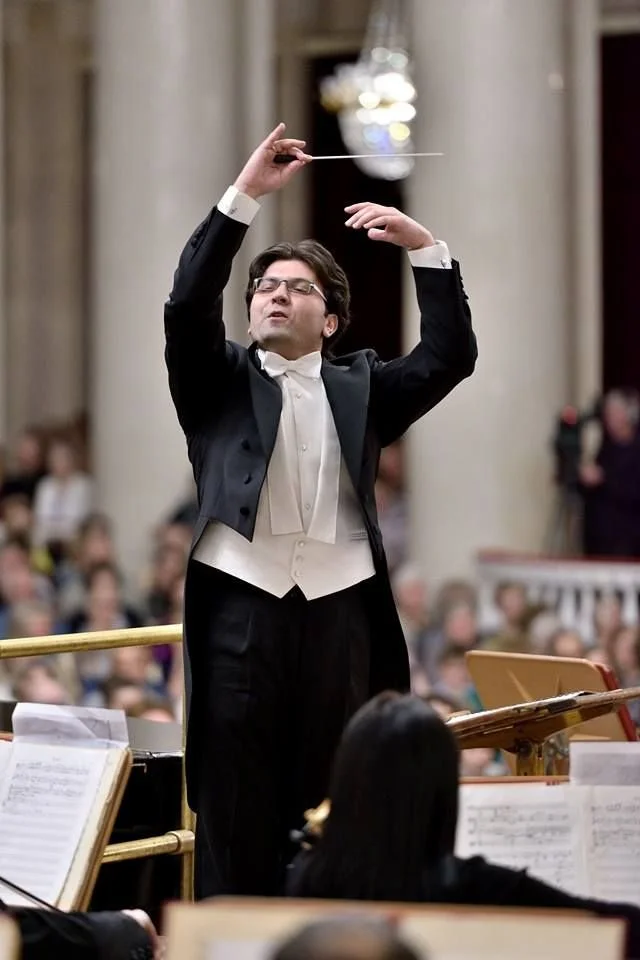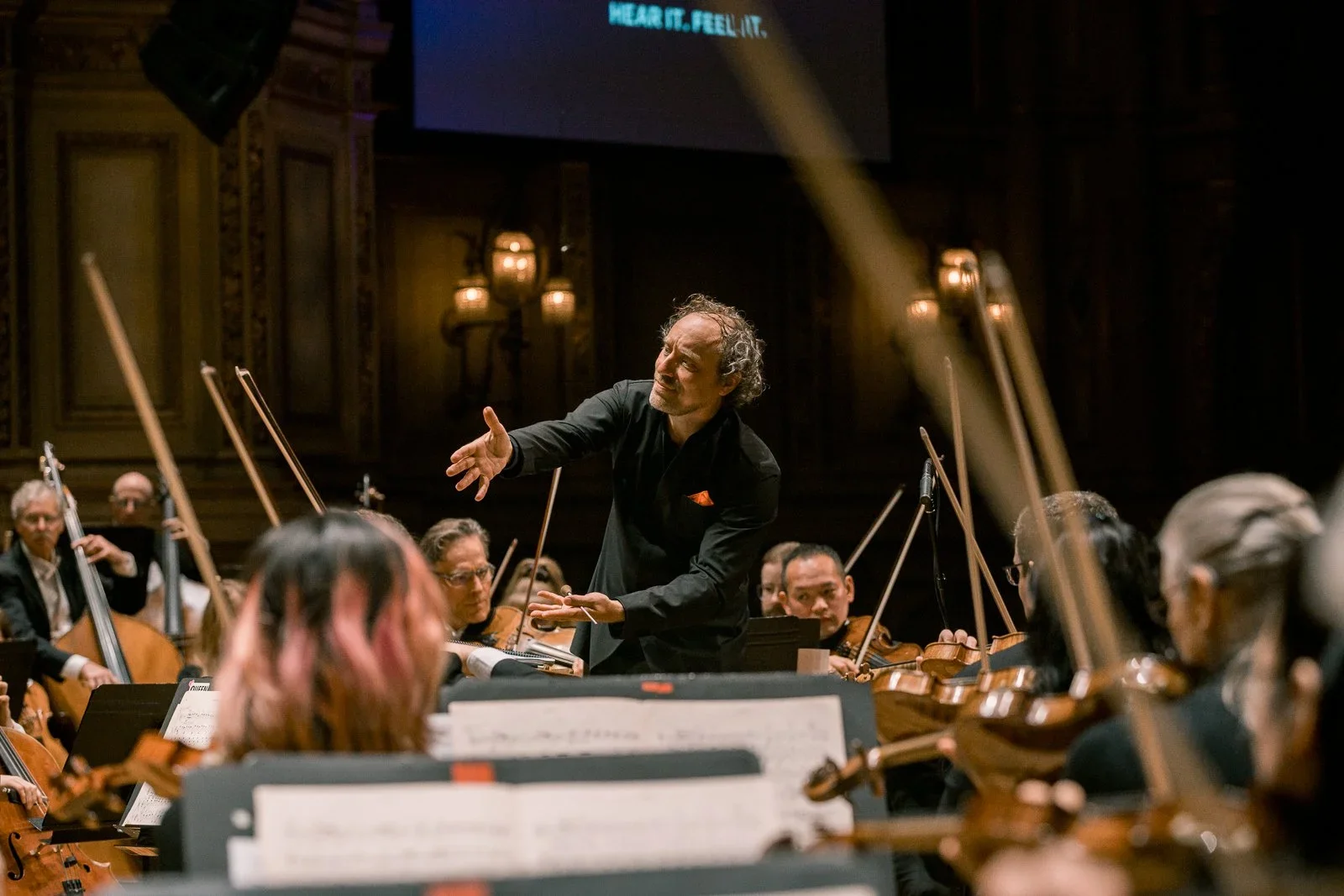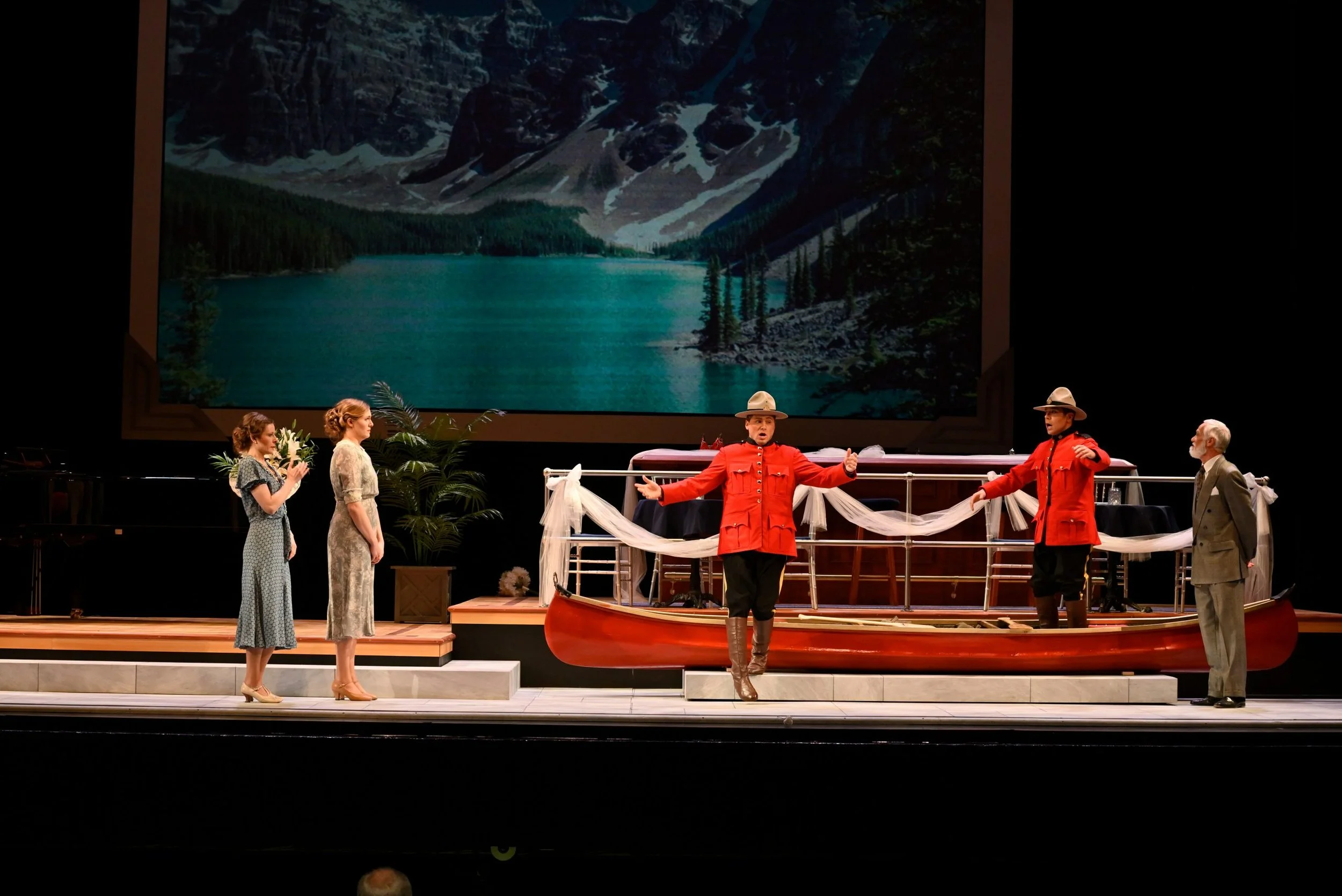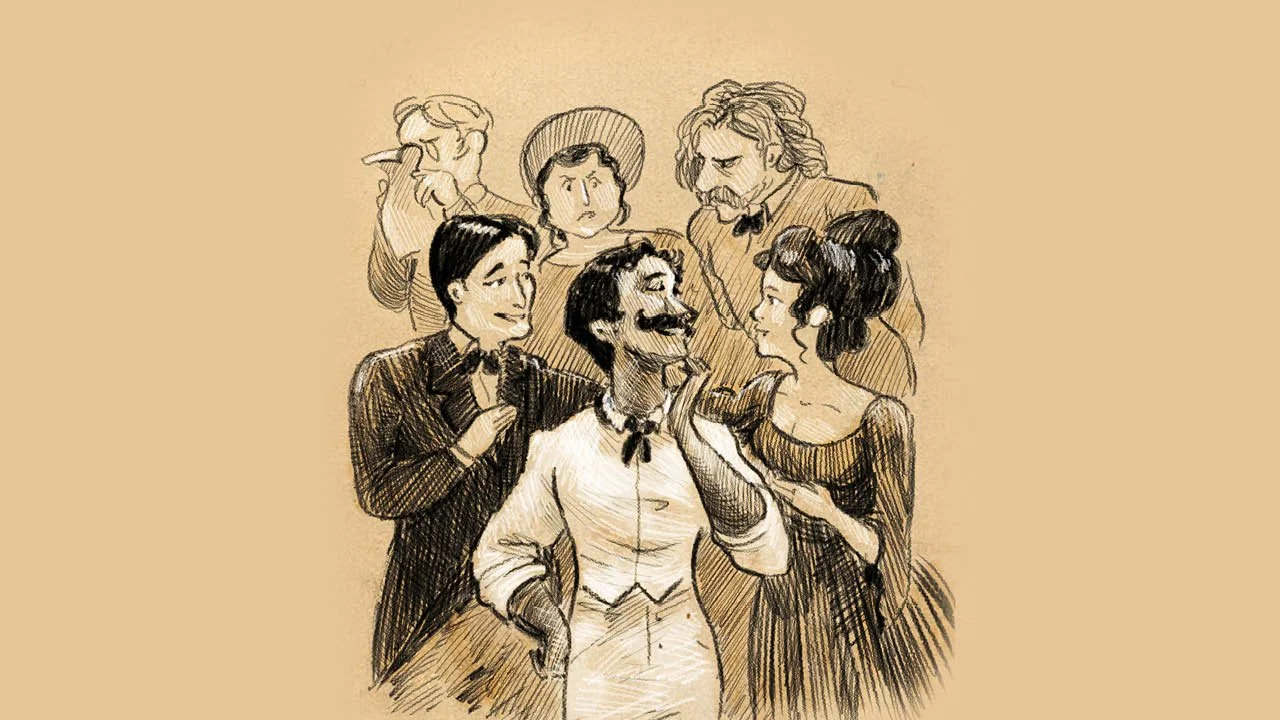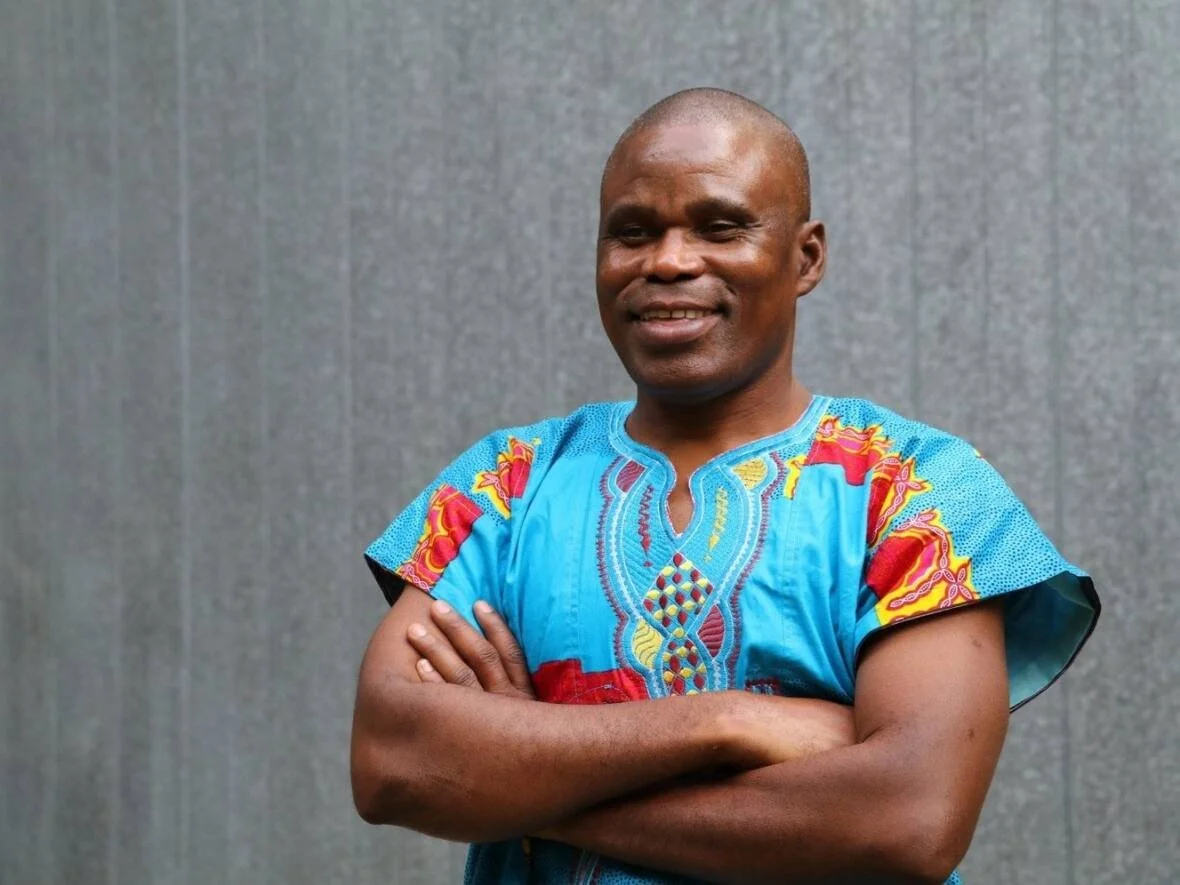Global Soundscapes Festival travels the unique cultural crossroads of Azerbaijani music
The ancient Azeri tar mixes with the Vancouver Inter-Cultural Orchestra’s wide world of instruments
Vancouver composer Farshid Samandari has written a concerto for tar and world orchestra.
Tar master Ayyub Guliyev also conducts European orchestras.
Global Soundscapes takes place at The Cultch from June 9 to 12
JUST OVER 10,000 kilometres separate Vancouver from Baku, but it could be argued that an even greater cultural gulf divides the two cities.
Both share a similarly temperate climate and ocean views, with the Azerbaijani capital located on the landlocked Caspian Sea, but Baku is ancient and largely Muslim rather than recent and predominantly secular. Compounding the difference is that Azerbaijan was part of the Soviet Union from 1920 to 1991—a painful time in the country’s history, but one that shaped contemporary Azeri life in many profound ways.
But this week Baku and B.C. will meet as part of the Global Soundscapes Festival, with the father-and-son team of Ramiz and Ayyub Guliyev representing their country here, and also exchanging sounds and concepts with a cosmopolitan cast of local musicians and composers.
Azerbaijan could ask for no better ambassadors. Ramiz Guliyev is considered the greatest living exponent of the Azeri tar, a guitar-like instrument that’s also found in Iran and Afghanistan; he’s also a respected teacher, who’s trained three generations of younger musicians and essentially created a role for his instrument on the world stage. His son Ayyub is also a tar master, but these days is more often found in front of an orchestra with a baton in his hand, conducting European symphonies and operas along with contemporary music from his homeland.
Last week, however, Ayyub was at home in Baku, performing with the Azerbaijan State Academic Opera and Ballet Theater. His busy schedule prevented a telephone interview but, answering written questions by voicemail, he was happy to give a capsule history of Azeri music, sing the praises of his father, and comment on the music they’ll play—together and apart—in Vancouver.
Ancient Azerbaijan, he points out, was located roughly at the midpoint of the fabled Silk Road, and in consequence Azeri traditional music draws on influences that stretch all the way from North Africa to China. “The traders, they brought not only items to sell, they brought their own music—folk music, traditional music—and their own culture, their own history, their own literature,” he says. “And it was a great thing. It was really a merger of different countries.”
Over time, Azerbaijan developed a complex system of melodic and rhythmic motifs, mugham, which is roughly comparable to the Arabic maqam or the Persian radif, but with an even greater emphasis on the literary or poetic aspects of vocal music, and a unique set of microtonal modes.
Under Soviet rule, the education system attempted to impose Russian values on Azeri musicians; “Microtones were a symbol of the old aristocratic system, and so they should be abolished,” notes Vancouver composer Farshid Samandari, who has written a concerto for tar and world orchestra that will be premiered at Global Soundscapes. Azeri musicians battled back, however, by mastering Russian forms—the great cellist Mstislav Rostropovich, for instance, was Azeri—while keeping their own musical heritage very much alive.
Typical of this cross-cultural approach, Ayyub says, is Hasan Rsayev’s Chahargah Rhapsody, here rearranged for the Vancouver Inter-Cultural Orchestra by artistic director Mark Armanini, and performed on the same bill as Samandari’s Gnats in the Wind and an arrangement of an Antonio Vivaldi concerto for two mandolins.
“It is really one of the masterpieces of this composer, Hasan Rsayev,” Guliyev contends. “And I think one of the best players of this piece is my father, because he premiered this piece for Azerbaijan tar players. He made an arrangement of this rhapsody for tar and piano, and then he made arrangements for tar and symphony orchestra, tar and chamber orchestra, and other musical ensembles. So in Vancouver we’ll play it with a world orchestra. It’s one of the highlights of the festival: Mr. Armanini has made a special arrangement of this piece [featuring] some really different instruments from different countries: guzheng, santur, mandolin, kamancheh, erhu… They all will play together with Azerbaijani tar, and we’re really, really happy and very grateful to Mr. Armanini for bringing these instruments together.”
The younger Guliyev is similarly impressed with Gnats in the Wind, and expresses surprise that the Iranian-born Samandari has such sympathy for the Azeri tar. (Iran has its own version of the instrument, but it is strung, tuned, and held quite differently.) For Samandari, however, the connection is natural: Ramis Guliyev introduced him to Azeri music in Tehran, more than 20 years ago. Samandari still treasures the memory of encountering the tar virtuoso in concert, although he admits that at first he was a reluctant listener.
“One of my friends forced me to go,” he explains. “He had tickets, and needed a ride. I thought that I might not enjoy the concert, because they were saying in the program that he was going to play in a mode called segah . Being very naive, and not knowing much about the differences between Azeri music and Persian music, I assumed that he was playing in Persian segah, which at the time I didn’t really like. It’s a very sad mode, in a sense, if it’s not played well. So I felt that I didn’t want to go, but when we got there it was a crowded concert, he was playing just with a piano, and he played for over three hours. My friend wanted to leave, but I didn’t; I was mesmerized.”
Not only was Samandari entranced, he was set on the course that eventually led him to Vancouver, and to his position as composer-in-residence with the Vancouver Inter-Cultural Orchestra.
“I realized that I shouldn’t have any prejudice,” he says. “If I don’t know something, I just have to go with open ears and perhaps I will learn something. And that was the case.”
Samandari will contribute two other compositions to Global Soundscapes: Fosün for 88 Strings, a new ensemble that includes intercultural virtuosi Tai-Lin Hsieh, Joy Yeh, John Oliver, and Ali Razmi; and Titoo, for Montreal’s’ Ensemble Paramirabo. The latter, the composer adds with obvious amusement, is in Persian segah. It’s also inspired by a Sanskrit fable that was translated into Farsi more than 1,500 years ago, and although it stars birds rather than humans, its moral is that “People getting together can do great things.”
That’s a sentiment Ayyub Guliyev wholeheartedly agrees with. “Music brings us together,” he notes. “It doesn’t matter if you speak different languages, it doesn’t matter if you play different instruments or different genres: music brings us all together. So we are really, really happy to be in Vancouver to take part in this great festival.”



